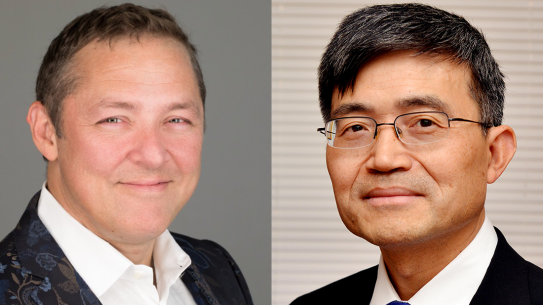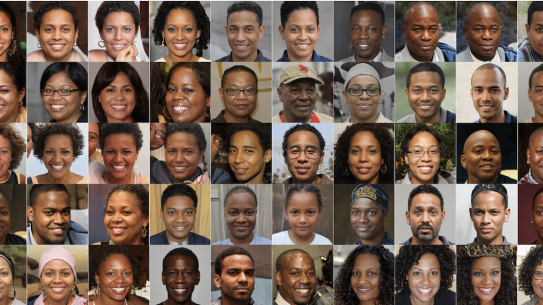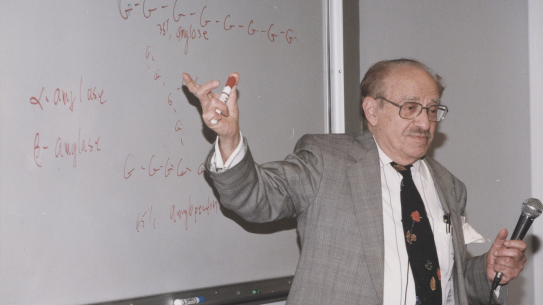Startup Guru Steve Blank Brings His 5-Day Lean Launchpad to NYU
If you’ve read anything at all about the NYU Polytechnic School of Engineering’s incubators; its NSF iCorps node, which helps scientists and engineers commercialize their research; or any number of other entrepreneurial initiatives going on here, chances are you’ve heard about lean start-up methodology. More than a buzzword, “lean” means launching an enterprise by experimenting, seeking customer feedback, and then modifying your plan or product repeatedly. In other words, if you’re going to fail—as most new businesses do—fail fast, learn from it, and improve on the next try.
Retired serial entrepreneur-turned-educator Steve Blank launched the Lean Startup revolution with his first book,The Four Steps to the Epiphany. The Four Steps and Blank’s latest book, The Startup Owner’s Manual, are used by startups of all stripes and universities teaching entrepreneurship worldwide. His May 2013 cover story in the Harvard Business Review, "Why the Lean Startup Changes Everything," defined the movement. Blank’s 5-Day Lean LaunchPad, hosted by the Department of Technology Management and Innovation, is aimed at entrepreneurial students who want to get right down to business. He’s coming to Brooklyn from August 25 to 29, so if you’re an NYU graduate student with an idea, grab some teammates and prepare to get lean.
Q&A with Steve Blank
Q: When you were growing up in New York City, did you think of becoming an entrepreneur or running your own business?
A: I thought that the height of my career could possibly be working at a deli slicing meat. I was hanging on trying to survive.
Q: What career path did you follow that led you here?
A: ‘Career path’ is a stretch, but what led me to where I am today was immense curiosity, serendipity, and showing up a lot – more than most other people. I went to school in Michigan for pre-med and I lasted a semester. I had a girlfriend who was working her butt off at three jobs and a scholarship to actually stay in school, and I remember her saying the magic words, “Why are you still in school? You don’t even look like you care about being here!”
That was the first time in my life that anyone told me that I had permission to do something else. I didn’t know what I wanted to do, but I knew it wasn’t school, so I hitchhiked to Florida and ended up working at the Miami International Airport loading racehorses onto cargo planes. And I fell in love with planes. I didn’t want to be a pilot, but the electronic equipment was incredibly interesting, and so I started taking the manuals home and reading about them, and talking to scientists and technicians, and found it fascinating.
Q: What is the most important thing you learned from the successes of your startups? The failures?
A: Let me be clear, nobody loves to fail. Failure is never a goal, but the real insight that no one had for a long time was that unlike large companies that execute (meaning they do repeatable things and you know what to expect), in a startup, it’s all a series of unknowns. And most startups go from failure to failure learning all the time, and that’s a huge insight. We used to think that failing as a startup was exactly the same as failing as a large corporation, and it turns out that’s simply not true, it’s a very different type of activity you’re doing.
My personal failure was when I was CEO of a company called Rocket Science Games, and we failed because of hubris. I believed my own press. I was on the cover of Wired magazine, and everyone was saying we were geniuses, but we were actually idiots. We didn’t understand our customers or the market at all. And the customers rewarded us with what we deserved.
With my last company, E.phiphany I understood our customers better than they understood themselves. And that was because we spent a lot of time getting out of the building and talking to them. And that was some of the basis for the customer development process I teach now with Lean LaunchPad.
Q: How did you get involved in teaching? What specifically led you to the creation of the Lean LaunchPad curriculum?
A: I started teaching at UC Berkeley, and then I decided to teach customer development at Stanford, but about five or six years in, I realized we had it wrong. The pedagogy was wrong. Entrepreneurship is an experiential activity – much like art is, but we were teaching it the way we would teach accountants in finance classes. We should have been teaching it the way we teach sculptors or artists, and therefore what was missing was a hands-on experiential class. So I taught this idea at Stanford.
Q: You've been teaching entrepreneurship for some time now, what are the classic mistakes student entrepreneurs make?
A: First of all, the classic mistake that everyone makes, not just students, is believing that if you’re passionate and have a vision, then you’re a visionary. The data actually says you’re more than likely to hallucinate. You might be the smartest person in the building, but there’s no way you’re smarter than the collective intelligence of your customers. Big mistake number two, is thinking that “getting out of the building,” means pitching your product to somebody. And that’s not what you’re supposed to be doing at all. You’re supposed to be testing your assumptions about the problem and solution, and who the customers are. Leave your PowerPoint and demos at home and first see if you can validate some of your initial assumptions.
Q: What is Lean LaunchPad, how does it work, how is it different (than other approaches to teaching entrepreneurship) and why is it important to startups?
A: It says that commercialization of any technology has two components: moving the technology forward and moving the company forward. And you can’t understand the company part from inside your office or building. So, it provides a framework for startups using a business model canvas, customer development, and financial engineering.
Q: What is one thing a team should keep in mind when forming a startup?
A: It’s not a job; it’s a calling. If you’re doing it just because you think it’s cool or your roommate or classmates are doing it, you’re going to fail. A startup has to be something that you can’t think of anything better than to spend the next three or four years of your life doing because the odds of you being the next Twitter or Facebook is probably 1 in 10,000. You should do it because there’s just something inside of you that you need to have come out, and this is the only way you can express it.
Q: What kinds of people are integral to a successful startup?
A: People have theories about complementary sets of skills that matter for startups like tenacity, resilience, and, my favorite, curiosity. And there are also technical skills, but all of these are very different from the skills that allow you to excel in a very large company. In a large company, you want to be someone, but in a startup, you want to do something. It’s be vs. do.
Learn more about the 5-day Lean LaunchPad





